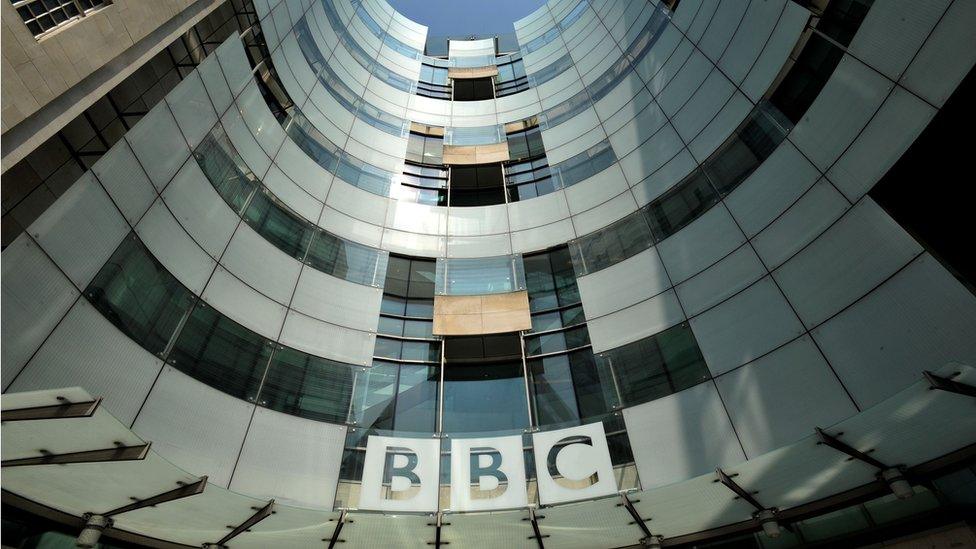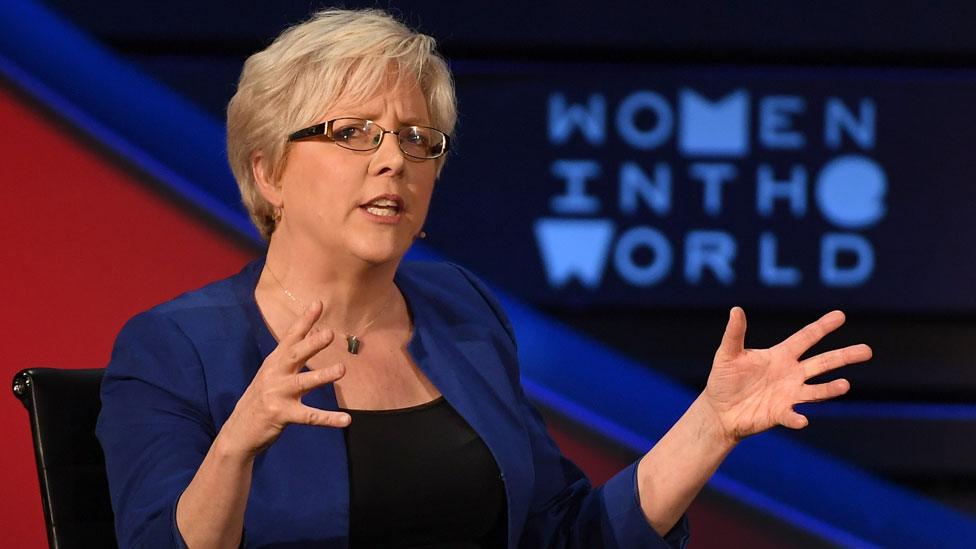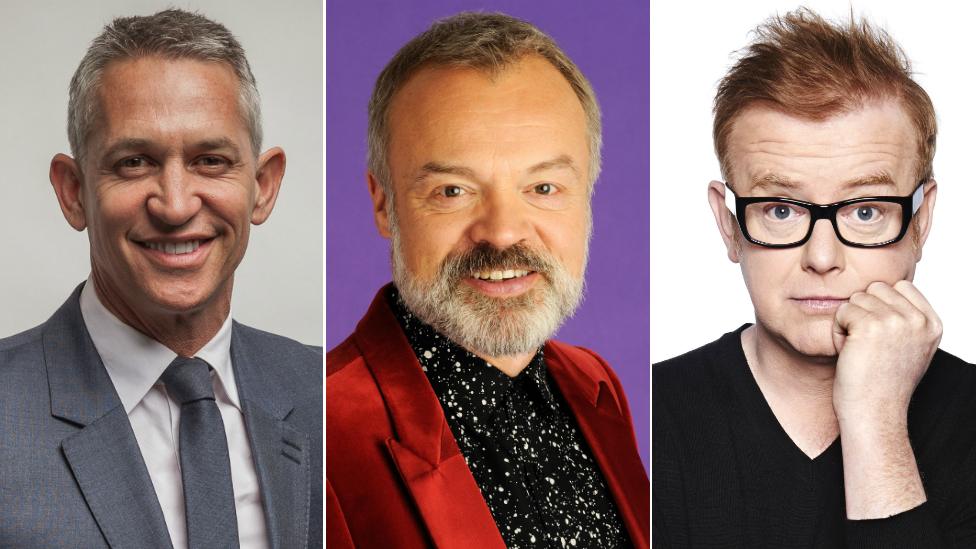BBC investigated over pay discrimination
- Published

The BBC is to be investigated over suspected past pay discrimination against female employees.
The Equality and Human Rights Commission (EHRC) inquiry follows complaints that female workers were not paid the same as men for equal work.
The BBC has voluntarily provided the EHRC with information about its pay policies. The investigation will look at records dating back to 2016.
The EHRC says it hopes to publish the results by the end of this year.
'Gold standard'
The BBC's director general Tony Hall said: "We've been through a tremendous period of reform - and have already changed things for the better. The Commission itself recognises our commitment to reform and our collaborative approach.
"We try to be the gold standard of what everyone wants from society - openness, respect and equality. We may not always succeed, but I am confident that we are a decent and fair employer. And, of course, if there's more we can do, we will."
The EHRC said it "suspects that there has been unlawful pay discrimination by the BBC... in the period prior to the introduction of these recent reforms.
"The Commission recognises the BBC's commitment to reform and its desire to work collaboratively in ensuring that the reforms are fully refined and embedded. Against that background, the Commission wishes to review whether such reforms have fully corrected any potential historic unlawful pay discrimination."

The BBC's Carrie Gracie resigned from her role as China Editor over equal pay
In January, the BBC published a review of on-air pay carried out by PwC, and set out a five-point plan to help create a fairer and more equal BBC.
Those plans included substantial pay cuts for some men and increases for some male and female presenters and greater pay transparency.
A BBC spokesperson said: "As we have already acknowledged, we have some historic equal pay cases. We are profoundly sorry for this. We regret the time it has taken to resolve all of the questions, but some of these are complex and have not been straightforward to resolve. We are determined to make progress on the remaining ones.
'Highly critical'
"Given the public focus on this important issue we understand why the Equality and Human Rights Commission is looking for assurance on equal pay and we welcome it. It is a logical time to do this as we have gone through a period of significant reform.
"We are confident that the BBC can provide that assurance and indeed go beyond and demonstrate our commitment to be a model for others to follow in this area as a result of our reform programme, although of course we will learn any lessons from the EHRC's work as we continue to deliver change."
In January, the BBC was criticised by a group of MPs who said the corporation was refusing to admit it had a problem when it comes to equal pay.
The House of Commons culture committee has been investigating the issue.
It said it was "very disappointed that the BBC has failed to acknowledge that a pay discrimination problem exists".
The inquiry was sparked when presenter Carrie Gracie accused the BBC of pay discrimination last year. The BBC said it had now made "significant reforms".
The Digital, Culture, Media and Sport select committee published highly critical findings into the BBC's pay structure in October.

Follow us on Facebook, external, on Twitter @BBCNewsEnts, external, or on Instagram at bbcnewsents, external. If you have a story suggestion email entertainment.news@bbc.co.uk, external.
- Published11 July 2018
